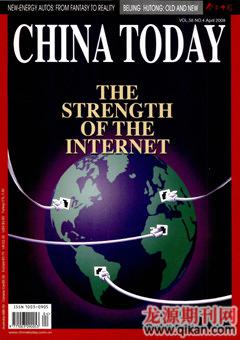Call to Oversee Cyber Spree
By staff reporter LI YAHONG

AS a result of the disclosure of his illegal activities on the Internet, Zhou Jiugeng, former director of the Jiangning District Housing Administrative Bureau in Jiangsus Nanjing City, was removed from his office in late 2008. The dismissal was the result of “renrou sousuo,” or “human flesh search,” a cyber search conducted by thousands of passionate netizens. However, the cyber allegation that “Zhou Jiugeng conspired with the developers brother” proved groundless.
The recent controversies over the legitimacy of human flesh search engines boil down, in fact, to the question of what exposure means for the individuals involved. Min Dahong, an Internet and digital media researcher with the Institute of Journalism and Communications attached to the Chinese Academy of Social Sciences, expressed his complex feelings about the unpredictable power of the Internet: “Human flesh searching can expose corruption, fraud and other social evils, but abuse will turn it into a form of cyber violence that may backfire on anyone.”
Love and Fear
Wang Fei, a Beijing citizen, probably knows better than anyone the degree of malevolence that human flesh search engines potentially hold. His wife Jiang Yan blogged about his extra-marital affair before she committed suicide. Jiangs friend Zhang Leyi established a website in memory of her late friend. Indignant netizens waged a human flesh search on Wang Fei, publishing his work unit and phone numbers, the name of his alleged mistress, their photos, and other personal information on the Internet. Some even issued “death” threats. Wang was forced to resign from his job. Later he sued Zhang Leyi and the related online companies for defamation and privacy violations.
The Chaoyang District Peoples Court ruled that the defendants violated Wangs right to privacy and reputation and issued punitive fines. Some netizens see the verdict as an expression of dissatisfaction over unrestrained Internet culture and called for more severe punishments of websites that facilitate privacy violations.
The interests of netizens encompass everything from corruption to pornography. Early this year, titillating photos of topless film star Zhang Ziyi and her boyfriend frolicking on a Caribbean beach quickly spread on the Internet, but the stir these caused were nothing compared to the sex photos of Hong Kong entertainment star Edison Chen and several female stars published on a local website on January 27, 2008. Within a month, the images induced 27 million hits, 150,000 postings and more than 1,000 subpages.
China Internet Network Information Center statistics show that Chinese netizens are mainly youngsters, with the 18-24 age group accounting for 31.8 percent. A cyber investigation conducted by the Chinese Academy of Social Sciences shows that 83.5 percent of respondents believe that porn websites are the main inducer of sex crimes among youngsters.
Combat Porn and Vulgarity
The Chinese government stipulates that Internet bars can only admit customers upon presentation of their ID cards, as a way of keeping children away from such playhouses. As their interest is to make as much money as possible, certain Internet bar keepers seldom follow this rule. “We seldom ask for ID, and people can enter freely,” confesses an anonymous Internet barkeeper.

According to Chinas Internet regulator, vulgar and pornographic Internet content is rising sharply, arousing many citizens to protest. Cai Mingzhao, deputy director of the State Council Information Office, points out, “Rampant Internet vulgarity has posed a serious threat to the physical and mental health of youngsters and directly harmed the interests of the general public.”
In early 2009, the Chinese government launched a crackdown on Internet porn and vulgarity. In a little more than two months, the China Internet Illegal Information Reporting Center (CIIRC) closed down 1,911 illegal websites and removed more than 200,000 pornographic and vulgar webpages, pictures and links.
The notifications involve Chinas four largest portal sites – Sina, Sohu, Tencent and Netease. The CIIRC also found that the Google and Baidu search engines were linked to many porn websites.
After receiving the notice, both Sina and Sohu assigned over 100 workers to sift their content, in particular forums and blogs that are “prone to troubles.” They also hold webmasters “responsible for deleting harmful content.”
By the end of 2008, China had 2.878 million websites, totaling 16 billion pages. “Our oversight of the net lags behind its rapid development,” confesses Li Jiaming, director of the CIIRC.
Internet and digital media researcher Min Dahong likens the Internet to a fast growing child whose healthy growth depends on legal regulation and stiff guidance.

